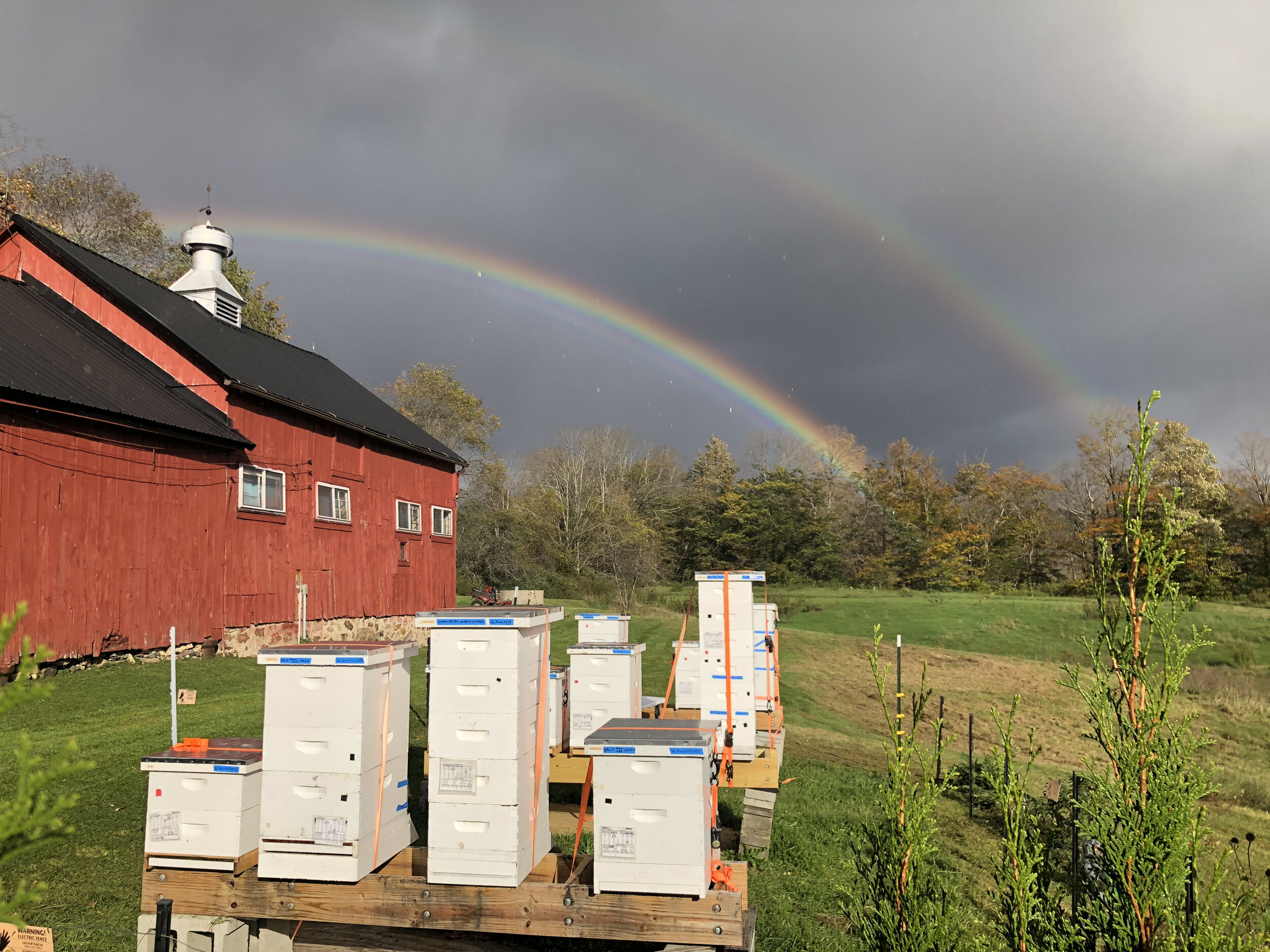
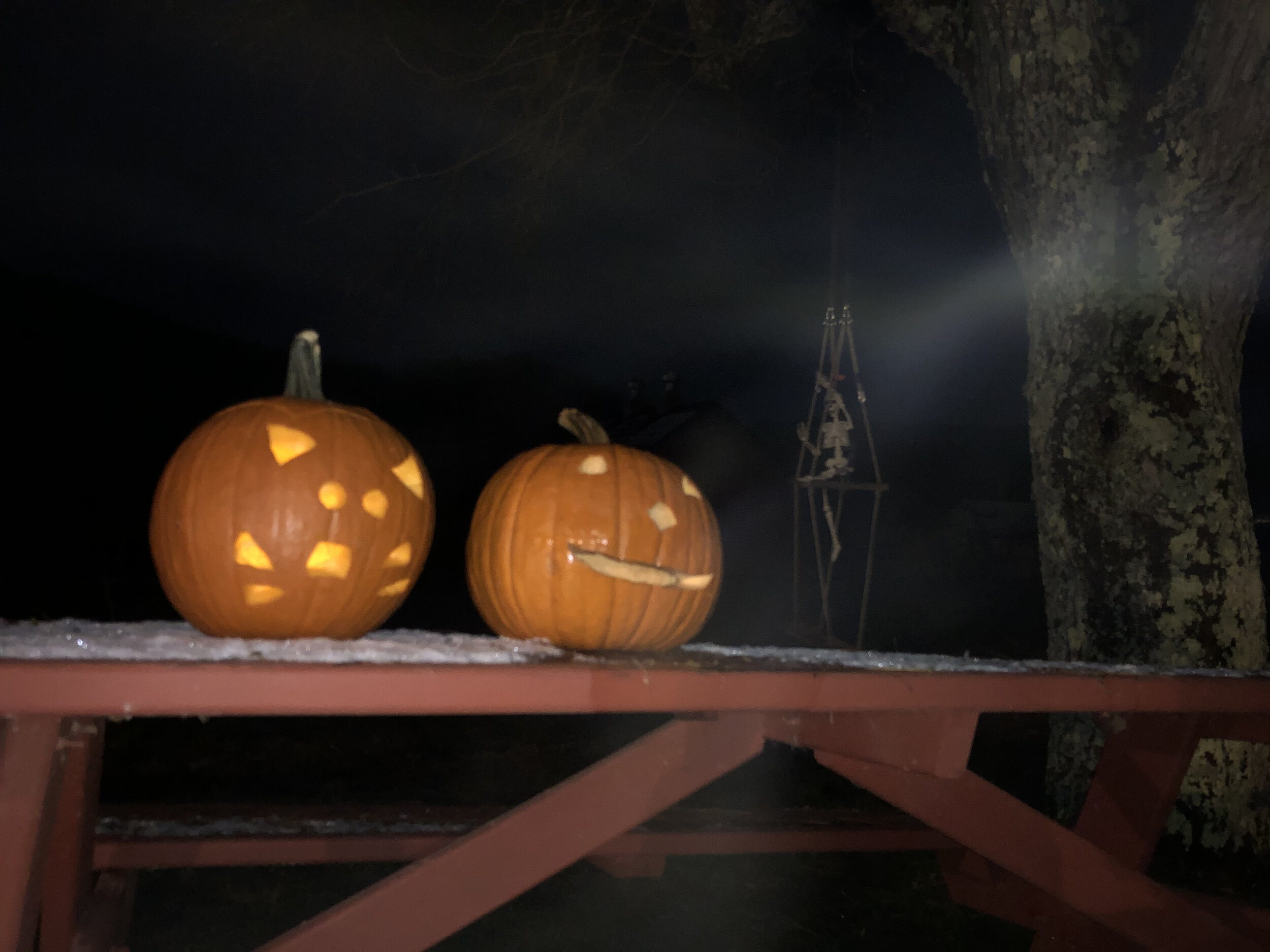
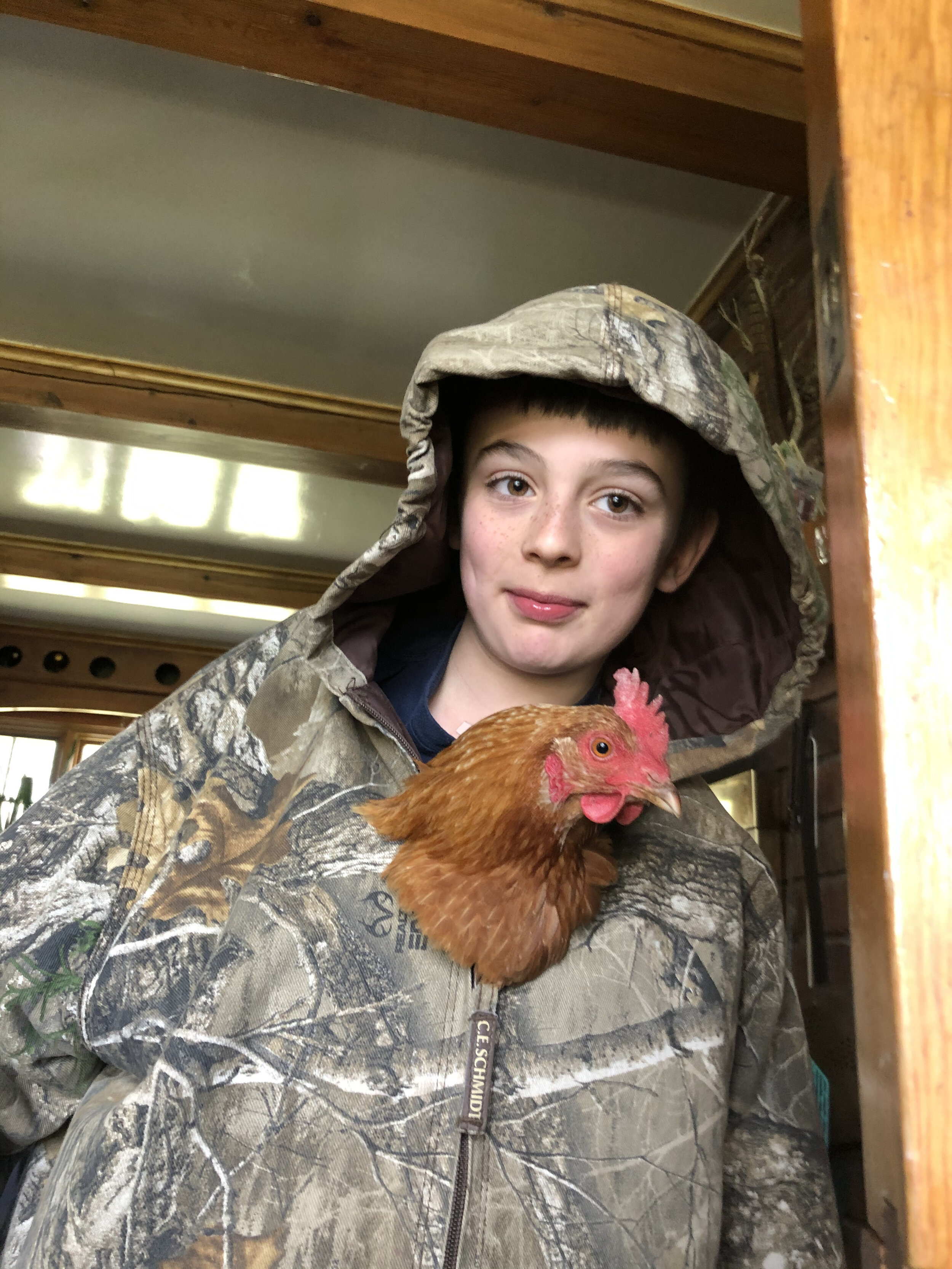

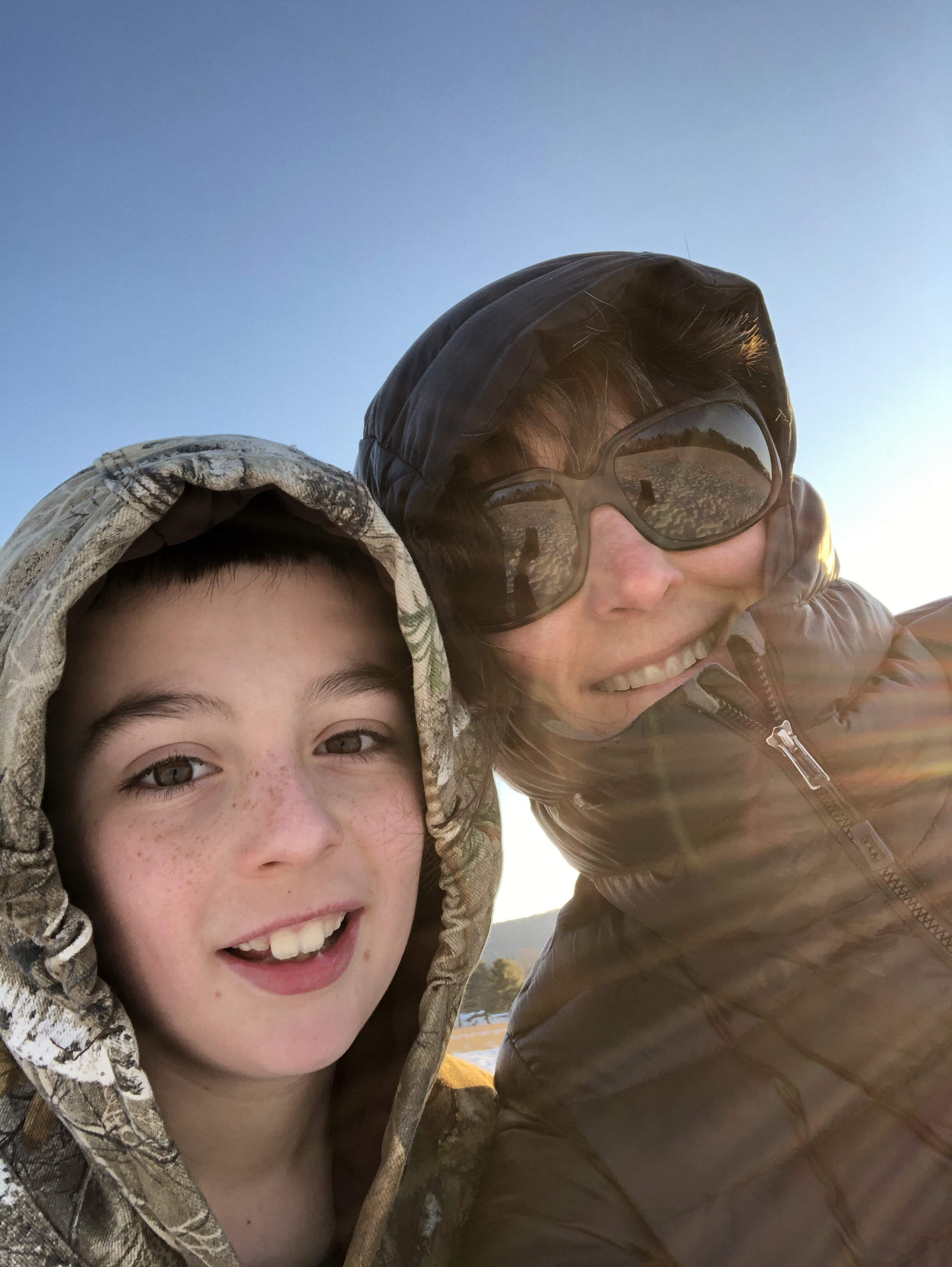

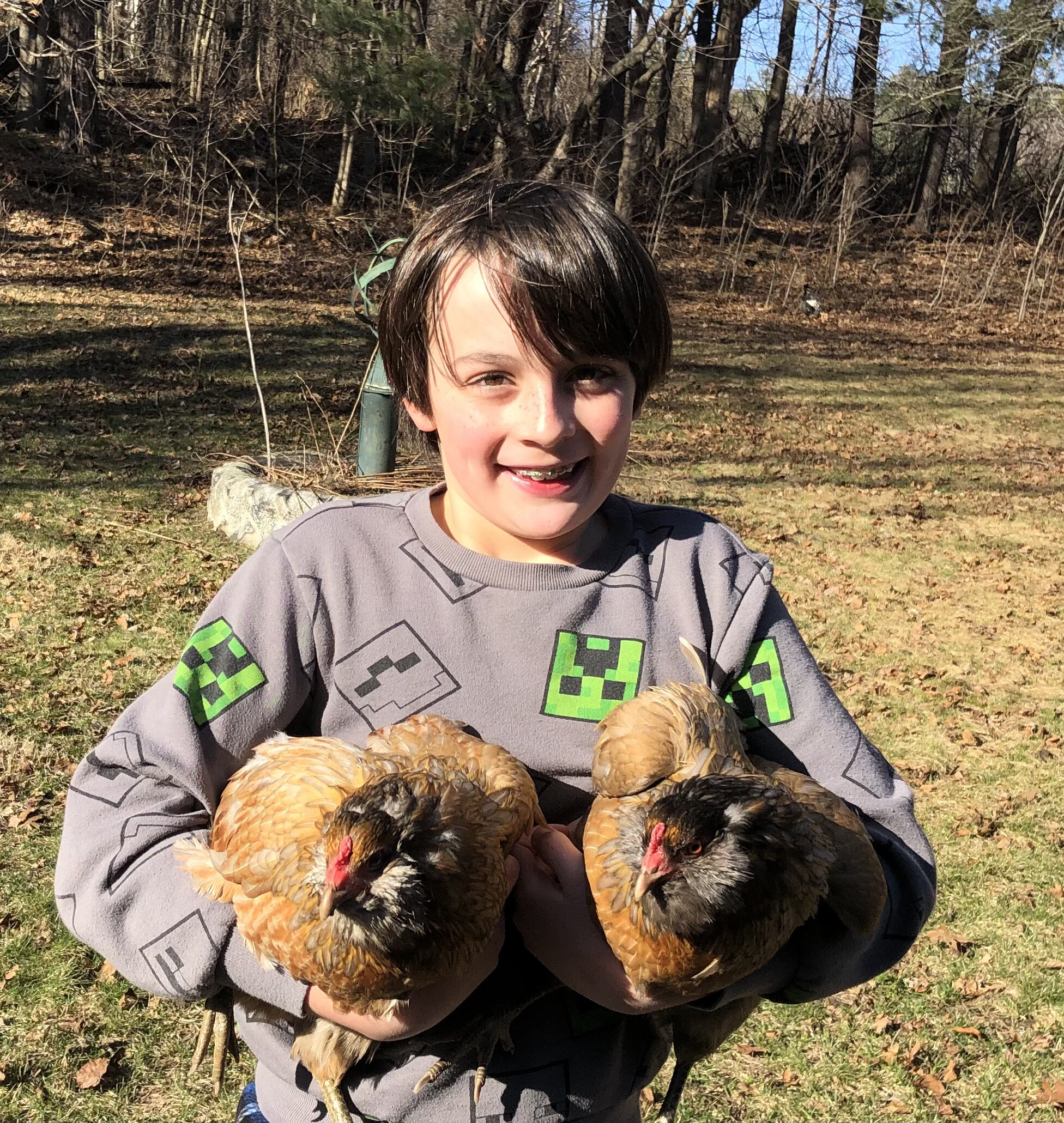

Evidence-based Management
Led by Science
Driven By Data
Inspired by Curiosity
Fueled by Passion
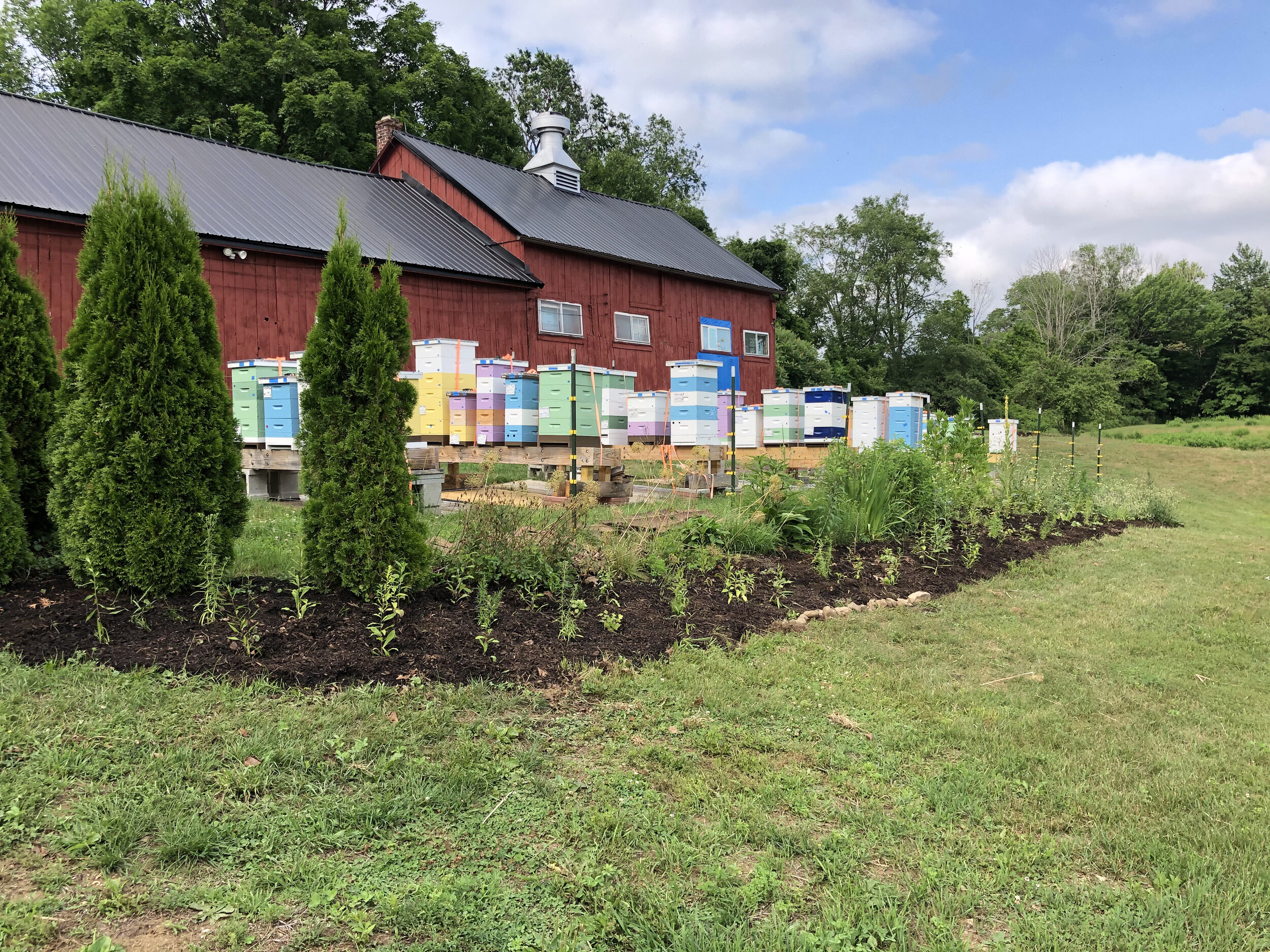
Our Story.
The Musante Farm business model is based on a sustainable virtuous cycle which both protects and saves honeybees, the world's most important pollinator of food crops. We begin by removing and rescuing problematic bee colonies from residential and commercial structures throughout New England and Eastern New York. We re-home these rescued bees on our Berkshire County Organic farm where they join our other bees in producing top quality local honey. We then propagate from the best of these locally adapted bees and offer subsequent generations of locally acclimatized bees to the New England beekeeping community. Together with mentoring and instruction in environmentally responsible and sustainable beekeeping, we foster the success of honeybees, beekeepers, and ultimately, our planet.
Our Virtuous Bee Cycle.
About Amy.
Amy Musante is founder and beekeeper at Musante Farm Apiaries and Bee Removal Services. She is a broadly-trained biologist with expertise in ecology, animal behavior, and evolutionary biology. Amy began her professional career working for the UMASS-Entomology Department in the early 90’s and her passion for biodiversity has fueled over 30 years studying the ecological relationships between organisms and their environments. She has conducted extensive research for academic, government & the private sector. While working as a researcher for the National Museum of Natural History, Amy received the Smithsonian PRIDE (Personal Recognition for Ingenuity, Drive and Excellence) Award.
Amy received a Bachelor of Science in Zoology and a Bachelor of Arts in Anthropology, with Interdisciplinary Honors from the University of Massachusetts. She also holds a Master’s Degree in Evolutionary Biology from the University of California, where her research focused on behavioral ecology, host-parasite coevolution, and avian brood parasitism. Amy also holds a Certificate in College and University Teaching from UCSB and has been committed to educating and inspiring people of all ages, backgrounds, and experience levels for over 25 years.
For the past decade Amy has focused her studies on Honey Bees. Amy’s professional positions have provided her with a transdisciplinary education that fosters her holistic approach. She successfully integrates the knowledge, perspectives, and skills from diverse disciplines and applies them to develop her unique approach to beekeeping. Amy is guided by science and empirical data. She observes, experiments, quantifies, reevaluates, and strives to continually improve her evidence-based beekeeping management.
Amy is also an expert at rescuing unwanted honey bee colonies from buildings, and ensuring they thrive once relocated to her farm! Musante Farm Apiary is not just sustainable, it continues to expand exponentially under Amy’s care. She is determined to help others learn how to maintain thriving colonies as well. Amy is inspired by curiosity, driven by data, and fueled by passion! She loves sharing what she has discovered, while also learning from others about their insights.
About Amy’s Prior Research Experience
Community Ecology— (Entomology Dept, Univ. of Massachusetts) long-term field research project deciphering the ecological interactions among Gypsy Moths, their small mammal predators, insect pests, parasitoids, and pathogens.
Population Biology and Community Ecology— (US Forest Service) field research on the relationships and interactions between small mammals and mast crops in northeastern forest communities.
Evolutionary Ecology— (Smithsonian Institution) museum research examining the environmental factors that drive adaptation and evolution in squirrels.
Behavioral Ecology— (Univ. of California) field research examining the ecological factors that drive behavioral adaptations and coevolution among avian host-parasites.
Conservation Biology— (Manomet Observatory for Conservation Science) detailed field research on the breeding biology and natural history of threatened (Cactus Wrens) and endangered (California Gnatcatchers) birds to help determine what we can do protect their essential habitat, foster populations, and prevent their extinction.
Population Biology— (Bloom Biological, Inc Consulting Firm) helped design and implement the pilot field study for the Imperial Valley Irrigation District’s Burrowing Owl Habitat Conservation Plan (HCP).
Marine Coastal Pelagic Fisheries— (California Department of Fish & Game) collected market and field data used to determine harvest guidelines and fishing quotas for the West Coast management of coastal pelagic fish and market squid.
